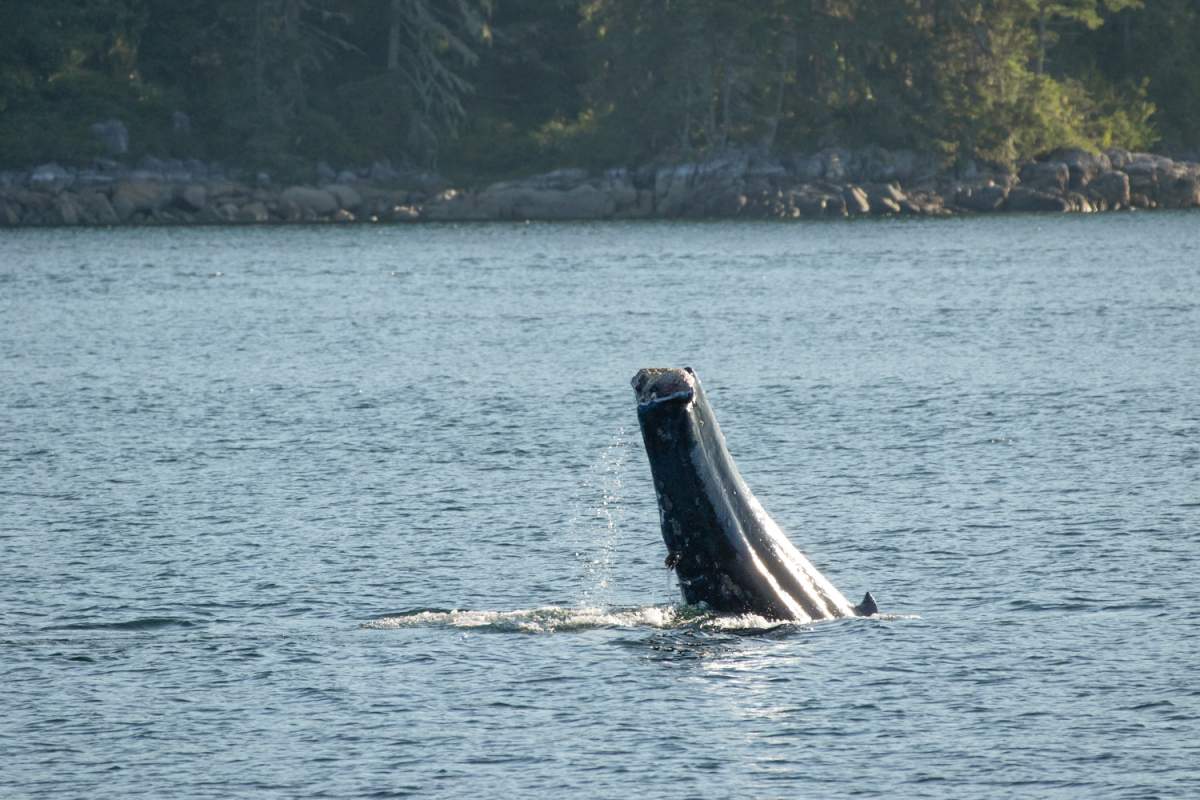Warning: This story contains images that may be disturbing to some readers. Discretion is advised.

Conservationists say heartbreaking images of a humpback whale with a severed tail on B.C.’s coast should serve as a wake-up call.
The whale was spotted twice earlier this month, once near Klemtu and once near Greenpoint Rapids, north of Campbell River.
Campell River Whale Watching co-founder Tyler Bruce said a group was on the water on July 10 when they saw the whale struggling to swim against the current.
“It wasn’t until the whale went to sound that we actually saw the back end of the whale and the tail end being missing, and that was when you could hear a big gasp of disbelief,” he said.
“A pretty significant part of the whale was missing. It was quite a shock.”
Bruce forwarded images of the injured whale to Fisheries and Oceans Canada (DFO), where officials offered a grim prognosis.

Get daily National news
“It was tragic, it was horrific…. I was frankly really surprised the animal was still alive,” Paul Cottrell with DFO Marine Mammal Rescue said.
Cottrell said without its tail fluke, the whale’s ability to move and forage is significantly compromised.
It is also likely unable to travel the long distances that humpbacks migrate and is already showing signs of emaciation.
“The long-term prognosis for this animal is not great, and likely we will be looking at a necropsy in the near future, unfortunately,” Cottrell said.
Researchers have been unable to identify the whale because the distinctive markings that usually allow humans to tell them apart are on their tail flukes.

Humpback whale researcher Jackie Hildering with the Marine Education and Research Society believes the whale lost its tail due to entanglement with fishing gear, given visible scarring.
She said she hopes the “gut-wrenching” images of its injuries will help people better understand the risks the animals are facing.
To that end, researchers have nicknamed the whale “Catalyst.”
“Catalyst for change, catalyst for awareness …. a catalyst for education,” Hildering said.
“Catalyst will very likely die, which is part of why we want this to count.”
The resurgence of humpbacks in B.C. waters has given the species a second chance, Hildering said.
But that resurgence has also increased the risk of deadly human-humpback interactions from both vessel strikes and entanglement with so-called “ghost gear.”

Hildering said tracking their health and population remains a challenge given the size of the coast and their more solitary nature, and she believes most cases of entanglement and death go unrecorded.
“A conservative estimate, and we are still pulling together our data, is that about 50 per cent of the humpbacks that have been photographed on the coast … show that they have been entangled at least once,” she said.
“So how many are dead?”
She said the case highlights the need to give the whales more space and to crack down on lost fishing gear — along with the importance of mariners staying on the lookout for whales in distress.
Anyone who sees an entangled marine animal can report it to Fisheries and Oceans Canada’s response team at 1-800-465-4336.











Comments
Want to discuss? Please read our Commenting Policy first.